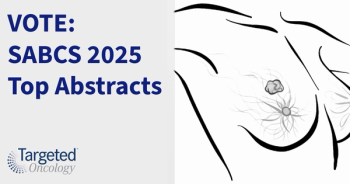
Data Supporting Trastuzumab/Pertuzumab Use In HER2+ Breast Cancer with Leptomeningeal Disease
Kamran A. Ahmed, MD, discusses the data leading up to the phase 1/2 study of radiotherapy followed by intrathecal trastuzumab and pertuzumab for the management of HER2-positive breast cancer with leptomeningeal disease and what impact the study may have on the community oncology space.
Kamran A. Ahmed, MD, a radiation oncologist at the Moffitt Cancer Center, discusses the data leading up to the phase 1/2 study (NCT04588545) of radiotherapy followed by intrathecal (IT) trastuzumab (Herceptin) and pertuzumab (Perjeta) for the management of HER2-positive breast cancer with leptomeningeal disease and what impact the study may have on the community oncology space.
According to Ahmed, radiotherapy can improve IT therapy and provide relief to patients. Previous studies have found that IT trastuzumab can improve overall survival in patients with HER2-positive leptomeningeal disease. Pertuzumab has also shown to help with HER-2 positive disease management. According to Ahmed, it makes sense to combine this combination with radiotherapy.
Leptomeningeal disease poses a lot of difficulties in management, according to Ahmed. The prognosis of these patients tends to poor. A multidisciplinary approach that includes radiotherapy can provide a vital benefit for this patient population, according to Ahmed.
0:08 | We know that radiotherapy can improve the flow of IT therapy through the cerebral spinal fluid and provide symptomatic relief. There has been data from a phase 1/2 study that's revealed that IT trastuzumab is well tolerated and can improve overall survival compared to historical controls of patients with HER2-positive leptomeningeal disease. So, given the role of pertuzumab in HER2- positive disease management, and the poor prognosis in leptomeningeal disease, the next step was for us to conduct the current study in which we combine radiotherapy with intrathecal trastuzumab/pertuzumab
0:47 | I think that leptomeningeal disease presents a lot of difficulties in management and requires a multidisciplinary approach. A lot of these patients have a poor prognosis and the management of not only their intracranial disease with the leptomeningeal metastasis but also their extracranial disease. I think having the multidisciplinary management with medical oncologist, neurooncologist, radiation oncologist is really vital to the management of these patients.









































